Peacebuilding Through Dialogue: Education,
Human Transformation, and Conflict Resolution
Peter N. Stearns, Editor
George Mason University Press
Fairfax, Virginia
Copyright 2018 by George Mason University Press and the Ikeda Center for Peace, Learning, and Dialogue
The Ikeda Center is an institute in Cambridge, Massachusetts, devoted to the related pursuits of peace, learning, and dialogue.
ISBN: 978-1-942695-11-0 (trade paper)
ISBN: 978-1-942695-12-7 (ebook)
All rights reserved. This book may not be reproduced in any form without permission of the publisher, except as permitted under Sections 107 or 108 of the 1976 United States Copyright Act.
First edition
Library of Congress Cataloging-in-Publication data is available.
Printed in the United States of America
Cover and interior design: Gopa & Ted2, Inc.
Project management and copyediting: Mitch Bogen
Editorial assistance: Lisa Kirk
Proofreading: David Lampo
Foreword
Daisaku Ikeda
I N AN EXCHANGE with my dear, respected friends, jazz giants Herbie Hancock and Wayne Shorter, we agreed that jazz and the art of dialogue resonate at a very deep level.
These vibrant sessionswhether of jazz or dialoguedevelop as participants give voice to the calls that issue freely from their lives, mutually respecting each other and bringing forth the best that each possesses. Participants can give new life even to each others seeming mistakes or failures. As a result, all involved are dynamically elevated, and previously unrealized heights of creativity are reached.
The many examples of superb music that these two jazz masters have woven in collaboration with a remarkable diversity of musicians clearly demonstrate the power of dialogue inherent in the freedom of jazz.
While I was not gifted with a talent for jazz, I have challenged myself relentlessly in pursuit of the art of dialogue, engaging in many such sessions.
Growing up in Japan during World War II taught me all I will ever need to know about the suffocating realities of a militarism that will not brook free and open discussion. This experience instilled in me the conviction that dialogue is a bastion protecting human dignity against the assaults of violence, an essential force for the creation and expansion of peace.
After the war ended, I worked to develop grassroots dialogue under the tutelage of Josei Toda, a proponent of the ideals of human revolution and global citizenship. The following words of Ralph Waldo Emerson, encountered in those days, left an indelible impression on my young mind: the best of life is conversation, and the greatest success is confidence, or perfect understanding between sincere people.
Massachusetts in the middle decades of the nineteenth century was the site of efforts by Emerson and others to promote dialogue and bring to flower the ideas and spirit of the American Renaissance.
This year, the Ikeda Center for Peace, Learning, and Dialogue, founded in Cambridge, Massachusetts, in 1993, celebrates its twenty-fifth anniversary. Over the years, the Center has continuously created forums for dialogue, bringing together people of diverse backgrounds in the work of communicating a vision of a culture of peace to the world, in this way fulfilling the goals set out in its founding mottos:

Be the heart of a network of global citizens.

Be a bridge for dialogue between civilizations.

Be a beacon lighting the way to a century of life.
I am delighted that Peacebuilding Through Dialogue marks this anniversary by examining the many dimensions of dialoguean important theme the Center has consistently explored since its foundingbased on the multidisciplinary insights of leading scholar-practitioners from throughout the world. As founder, I would like to express my earnest appreciation to the authors for their invaluable contributions, as well as to Peter Stearns for his deep knowledge and editorial guidance.
The American Renaissance offers a truly inexhaustible source of insights into the value of dialogue. This philosophical movement arose and flourished in citizens efforts to awaken and educate their fellow citizens, often through public lectures. These lectures, some of which provided the basis for Henry David Thoreaus Walden as well as many works by Emerson, were occasions of open and thoughtful exchange.
The Lyceum Movement began as an open forum for learning where people, without regard to age or gender, were able to engage in lively and impassioned discourse. Lyceum is a Latin rendering of the Greek Lykeion, the home of the peripatetic school founded by Aristotle. A site where mentor and students conducted dialogical inquiries as they strolled on the grounds, the school was called Peripatos, meaning of walking or walking about in ancient Greek.
Inspired by this tradition, the Lyceum Movement of the American Renaissance placed importance on the spirit of mutuality, specifically the ideas of mutual instruction and mutual education. The movement aimed to elevate the citizenry not through one-way instruction but through the power of mutual teaching and learning.
This spirit of mutuality is an essential component in the kind of creative dialogue that the Center seeks to advance. Without mutuality, attempts at dialogue will constitute only dry and lifeless exchanges of words. We should heed the concern shared with me by Jim Garrison, past president of the John Dewey Society: Many times, what appears to be a dialogue is actually a soliloquy, because neither party is listening....
Many of the thinkers with whom I have engaged over the years concur that the key elements that make dialogue fruitful are respect for the other and the humility to listen to and learn from perspectives different from ones own.
For many years, Elise Boulding, remembered as the mother of peace research, warmly extended her support to the Ikeda Center. She reminded us that the creation of a culture of peace begins from our own effort to listen to others; that when we lend our ears to opposing opinions, this can bring to light the hidden essence of things, enabling us to grasp the core aspect of an issue. She considered listening to be the exemplary practice of the peacebuilder.
In order to achieve mutually enriching, deeply connecting dialogue, we need to overcome the divisions within our own hearts that make us unconsciously categorize people and rank their value on that basis. We need to be aware of the danger of categorizing people into such simplistic binaries as good and bad, us and them, and friend and foe. Such an approach is one of the deep drivers of conflict.
As a proponent of a philosophy of dialogue and of humanistically oriented education, John Dewey shed important light on this error and offered insights that today merit our renewed attention.
The bad man is the man who no matter how good he has been is beginning to deteriorate, to grow less good. The good man is the man who no matter how morally unworthy he has been is moving to become better. Such a conception makes one severe in judging himself and humane in judging others.

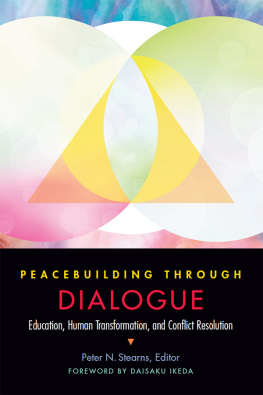

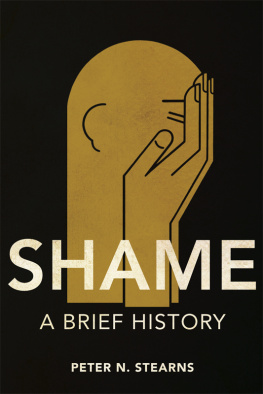
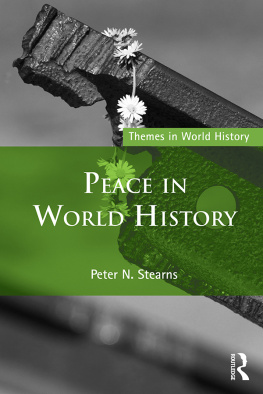
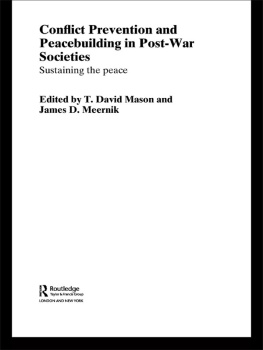

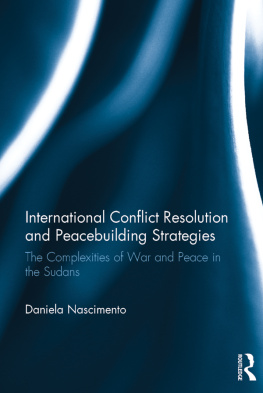
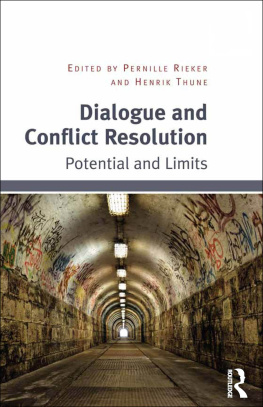
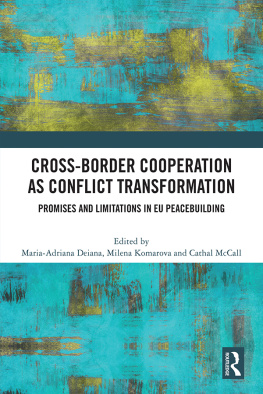
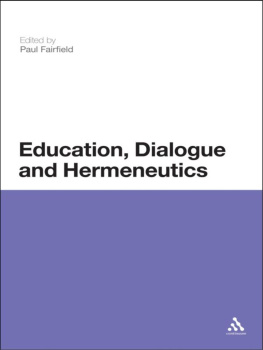
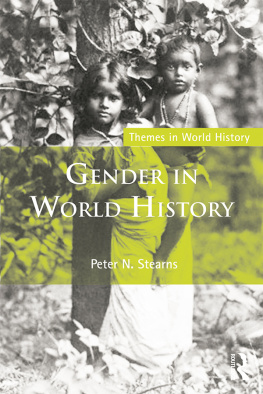
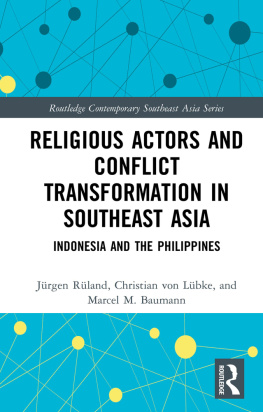


 Be the heart of a network of global citizens.
Be the heart of a network of global citizens.